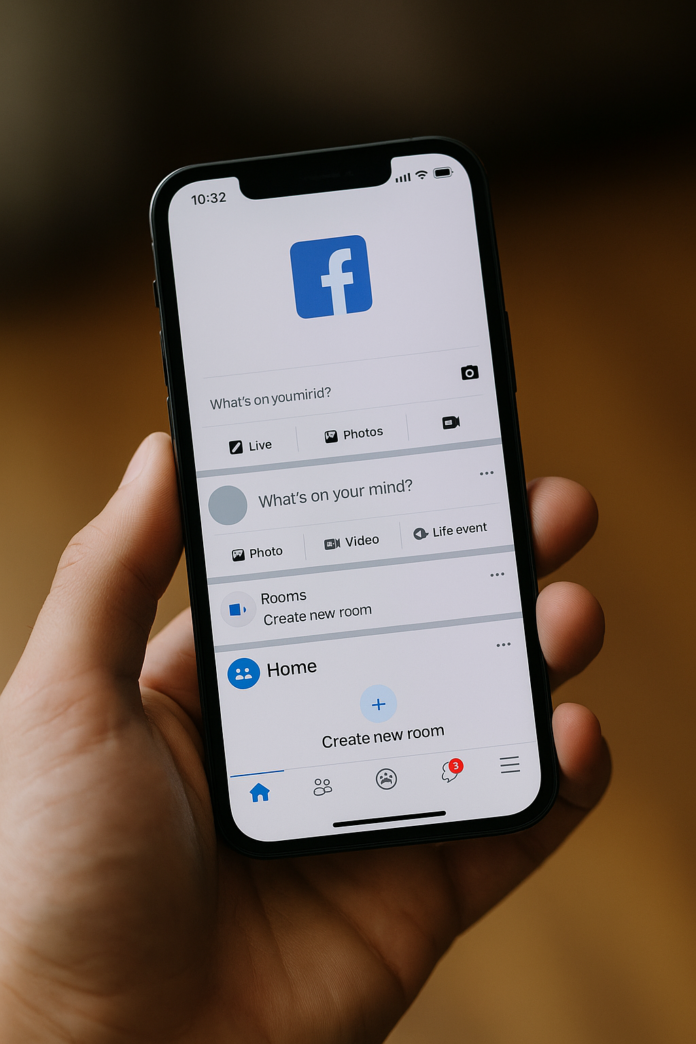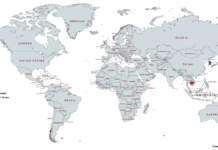
Meta has taken down a large Facebook group that shared information about federal immigration officers in Chicago, after the U.S. Department of Justice requested its removal. Attorney General Pam Bondi announced the action on Tuesday, calling the page a threat to the safety of Immigration and Customs Enforcement (ICE) agents working in the city.
The group, known as “ICE Sighting-Chicagoland,” reportedly had more than 80,000 members. Posts in the group were used to report the locations of ICE operations and, in some cases, reveal personal information about agents. According to Bondi, the page was used to “dox and target” law enforcement personnel during ongoing federal immigration operations.
“After outreach from the Justice Department, Facebook removed a large group page that was being used to identify and harass ICE agents in Chicago,” Bondi wrote on X. She added that the department would continue working with technology companies to curb online efforts that could endanger federal officers.
Meta confirmed the removal, stating that the group had violated its policy on coordinated harm—rules that prohibit activity encouraging violence, harassment, or exposure of private information. “We allow users to discuss or debate the work of public institutions,” a Meta spokesperson said, “but coordinated efforts to endanger or target individuals are not permitted on our platform.”
The takedown follows similar steps by other tech companies. Earlier this month, Apple and Google removed mobile apps that let users share and map ICE sightings. The most widely used of these, ICEBlock, was taken off app stores after Justice Department officials warned that such tools could disrupt immigration enforcement.
Bondi has argued that these digital platforms make it easier to spread hostility toward law enforcement. “Online apps and social media campaigns have fueled threats against ICE officers who are simply carrying out their duties,” she said. “The Department of Justice will continue to ensure that federal agents can do their jobs without being put at risk.”
Critics, however, say the government’s actions restrict online speech protected under the First Amendment. Developers and immigrant-rights advocates insist that the removed groups and apps were intended to inform communities and help people avoid sudden detentions. “These platforms are used for awareness and safety,” one developer said, “not to harm anyone.”
Chicago has seen growing tension since around 200 federal immigration agents were deployed as part of President Trump’s expanded enforcement campaign. Protests have occurred outside detention facilities and government buildings, with local leaders such as Mayor Brandon Johnson and Governor JB Pritzker voicing opposition to the federal presence.
Meta’s decision places it among major platforms facing renewed scrutiny over content moderation tied to government requests. While officials see the removals as necessary to prevent harassment and violence, advocates for digital transparency argue that the actions could chill lawful public discussion about immigration enforcement.
“The balance between protecting law enforcement and preserving online expression is a delicate one,” said a Chicago-based digital rights attorney. “Removing entire communities from social media won’t end public concern about federal immigration tactics—it just moves the conversation elsewhere.”
This image is the property of The New Dispatch LLC and is not licenseable for external use without explicit written permission.









